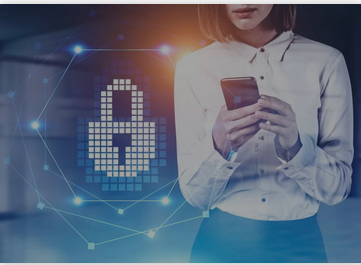With the internet being this kind of large section of our lives, it's important to comprehend the basic principles of computer security. Knowing the ins and outs of computer security may help protect important computer data from malicious threats, keep your online activity secure, and prevent hackers from accessing your information. In this short article, we'll cover everything required to understand about sicurezza informatica per utenti (computer security for users).

What is Computer Security ?
Computer security may be the practice of protecting computers, networks, programs, and data from unauthorized access or damage. It involves implementing various measures and protocols to make sure that only authorized users are able to access sensitive information. The target is to make sure that all data stored on a system is secure from hackers and other malicious threats.
How come Computer Security Important?
Computer security plays a significant role in keeping personal information, business records, financial transactions, and other sensitive data safe from attackers. Without proper security measures in place, hackers can quickly access confidential information which can lead to identity theft or other serious consequences. Additionally, businesses depend on computer security to guard their intellectual property and customer data in addition to ensure compliance with various regulations such as for example HIPAA or GDPR.
How Can I Improve My Computer Security ?
There are many steps you are able to take to boost your computer security including:
• Use strong passwords - A powerful password must be at the least 8 characters long and include a mix of upper-case letters, lower-case letters, numbers and symbols. Avoid using common words or phrases that could easily be guessed by hackers.
• Enable two-factor authentication - Two-factor authentication uses two types of identification – typically something you know (e.g., a password) and something you have (e.g., a text code) – for added protection when logging into an account.
• Install antivirus software - Antivirus software helps detect viruses or malware that may have been downloaded onto your device without your knowledge. Be sure you update the program regularly so it may detect any new viruses or malware quickly.
• Regularly patch systems - Os patches provide additional protection against potential threats by closing potential vulnerabilities in the device that hackers may exploit to access confidential data or spyware programs useful for tracking user activity online.
• Back up important files - Regularly backing up important files ensures that when there is ever an attack on your network or device you will still have copies of your files stored elsewhere so they really won't be lost forever due to malicious intent or simple hardware failure such as for instance a hard disk crash or power surge causing damage beyond repairable means..

Conclusion:
Understanding the fundamentals of computer security is required for anyone who would like to protect their personal information along with their business's sensitive data from unauthorized access or damage brought on by malicious actors online. By following best practices such as using strong passwords, enabling two-factor authentication , installing antivirus software , regularly patching systems , and copying important files , you are able to reduce the danger of becoming a prey of cybercrime.Taking these steps can help ensure your data remains safe against any potential threats while also helping maintain compliance with various regulations like GDPR or HIPAA.
No comments:
Post a Comment